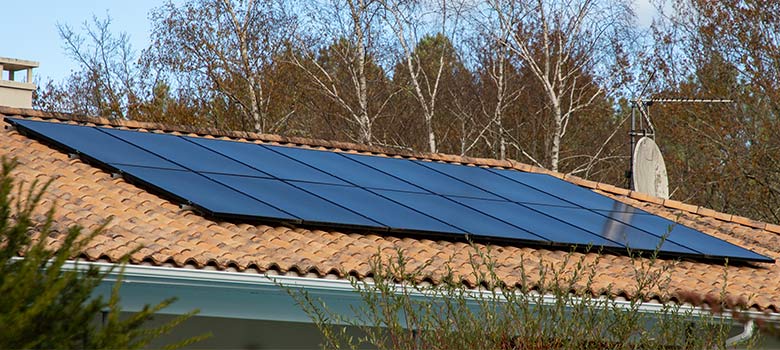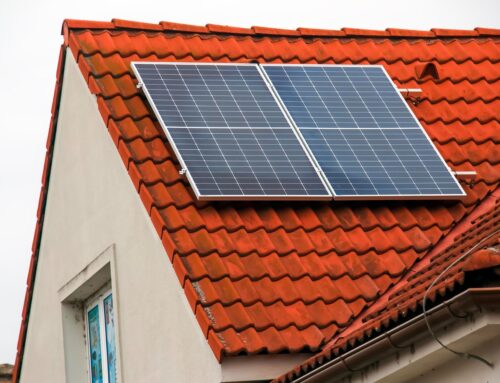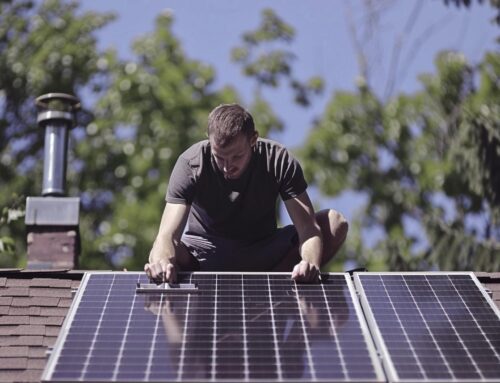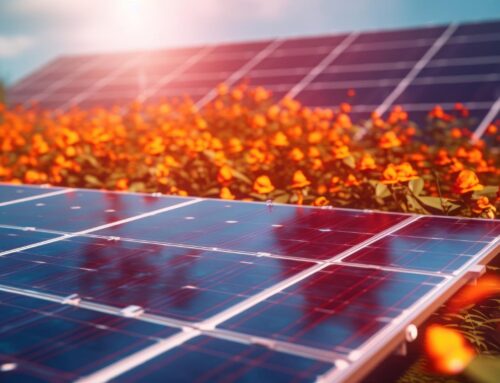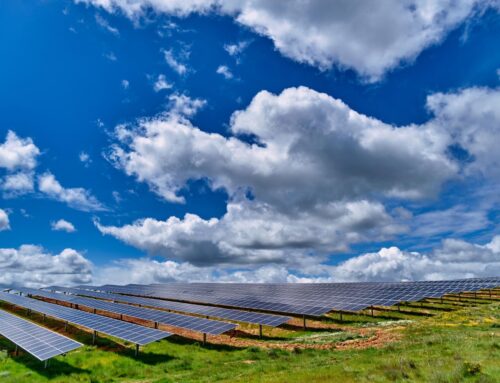Solar energy offers a sustainable and affordable solution at a time when home energy bills are rising.
But what type of solar panels are best suited to your Adelaide home?
We’ll help you answer that question in this sun-filled guide.
Here’s what you’re going to learn:
- The Best Solar Panel Types
- The Best Solar Panel Brands
- Factors for Choosing the Best Solar Panels
- How much do solar panels cost?
We’ll also break down the three titans of solar technology:
- Monocrystalline
- Polycrystalline
- Thin-Film solar panels
Each type bears unique characteristics, advantages, and considerations, making them suitable for different homes and lifestyles. Understanding these differences is not just a matter of preference but a crucial step in maximising your investment and aligning with your sustainability goals.
Choosing the right solar panel is more than just saving on energy bills; it’s about making a responsible choice for the planet. Your decision can contribute to reducing carbon footprints, harnessing renewable energy, and setting a precedent in your community for sustainable living.
Let’s get right into it.
ENERGY BUSTER TIPS:
|
Comparing Your Solar Panel Choices
Monocrystalline Solar Panels
Monocrystalline solar panels, known for their sleek black appearance, are the epitome of solar efficiency. Crafted from single-crystal silicon, they are not just aesthetically pleasing but also boast the highest efficiency rates in the solar panel market. Their unique manufacturing process ensures a uniform look and optimal performance.
Pros:
- High Efficiency: They convert more sunlight into electricity than other types, making them ideal for smaller roof spaces.
- Longevity: These panels are durable, often lasting more than 25 years.
- Aesthetics: Their uniform black look adds a modern touch to rooftops.
Cons:
- Cost: They are typically more expensive due to the high-purity silicon used.
- Heat Tolerance: They can suffer a reduction in output in extremely hot climates.
Monocrystalline Solar Panel Efficiency: What to Expect
Polycrystalline Solar Panels
Polycrystalline panels, recognisable by their blue, speckled appearance, are created by melting multiple silicon crystals together. They strike a balance between efficiency and affordability, making them a popular choice for homeowners looking for a middle ground.
Pros:
- Lower Cost: More budget-friendly than monocrystalline panels.
- Less Waste: Their manufacturing process is simpler and produces less waste.
- Moderate Efficiency: Suitable for larger roofs where space is not a constraint.
Cons:
- Lower Efficiency: They have a lower efficiency rate compared to monocrystalline panels.
- Aesthetics: The blue, speckled look might not appeal to everyone.
- Temperature Sensitivity: Their performance can also dip in high-temperature conditions.
Monocrystalline vs. Polycrystalline Solar Panels Compared
Thin-Film Solar Panels
Thin-film solar panels are the epitome of flexibility in the solar world. Made by layering one or more thin films of photovoltaic material onto a substrate, they are lighter and more adaptable than their crystalline counterparts. They offer a different approach to solar solutions, ideal for certain architectural needs.
Pros:
- High-Temperature Tolerance: They perform better than other types in hot climates.
- Flexibility: Can be installed on a variety of surfaces, including curved ones.
- Aesthetic Integration: They blend seamlessly with the building design.
Cons:
- Lower Efficiency: They generally have the lowest efficiency of the three types.
- Space Requirement: Require more space to generate the same amount of power as crystalline panels.
- Shorter Lifespan: They tend to have a shorter lifespan and degrade faster.
Each type of solar panel brings its own set of strengths and limitations to the table. Understanding these will help you align your choice with your home’s specific needs, aesthetic preferences, and environmental conditions.
Australia’s Top Solar Panel Brands
SunPower
SunPower stands out in the Australian market for its high-efficiency solar panels. Known for their advanced technology and robust construction, SunPower panels are designed to deliver maximum energy output even in limited space.
Pros:
- Exceptional Efficiency: Their panels offer some of the highest efficiency rates available.
- Durability: Built to withstand harsh weather conditions, ensuring longevity.
- Comprehensive Warranty: Offers one of the best warranties in the industry.
Cons:
- Higher Cost: Their advanced technology comes with a premium price tag.
- Availability: May not be as readily available as other brands.
LG Solar
LG Solar is renowned for its premium quality solar panels. With a focus on high performance and aesthetic design, LG Solar panels are a popular choice for homeowners seeking a blend of efficiency and style.
Pros:
- High Performance: Known for high energy output and reliability.
- Sleek Design: Offers a visually appealing appearance on rooftops.
- Strong Warranty: Provides a robust warranty, reflecting confidence in their product quality.
Cons:
- Premium Pricing: One of the more expensive options on the market.
- Weight: Panels may be heavier, requiring a sturdy roof structure.
Trina Solar
Trina Solar offers a cost-effective solution without significantly compromising on quality or performance. Ideal for homeowners looking for a balance between affordability and efficiency.
Pros:
- Affordable: Provides a more budget-friendly option.
- Good Efficiency: Offers decent efficiency rates for its price range.
- Versatility: Panels are suitable for a wide range of residential applications.
Cons:
- Lower Efficiency than Premium Brands: While efficient, they don’t match the top-tier brands.
- Warranty: Warranty terms may not be as comprehensive as premium brands.
Q CELLS
Q CELLS is known for producing reliable and versatile solar panels that balance efficiency and value. They are a popular choice for a wide range of Australian homes.
Pros:
- Balanced Efficiency and Cost: Offers a good compromise between performance and affordability.
- Quality Manufacturing: Known for their robust build and quality control.
- Positive Environmental Impact: Focuses on sustainable production processes.
Cons:
- Average Aesthetic Appeal: The design may not be as sleek as premium brands.
- Variability in Models: Efficiency and performance may vary across different models.
Top Factors for Your Ideal Solar Solution
1. Roof Size and Layout
For smaller or irregularly shaped roofs, efficiency becomes a key factor. With their higher efficiency, monocrystalline panels are often the best fit for such spaces, allowing you to maximise energy production in limited areas. Their compact nature ensures that every inch of your roof is effectively utilised for solar energy generation.
If space isn’t a constraint, polycrystalline panels become attractive due to their lower cost and decent efficiency. They allow you to cover a broader area without breaking the bank. The decision here hinges on balancing cost-effectiveness with the total solar output you’re aiming to achieve.
Best Roof Types for Home Solar: Compare Your Options
2. Climate and Environmental Conditions
In areas with high temperatures, the performance of solar panels can be significantly impacted. Thin-film solar panels, known for their excellent performance in hot climates, can be a wise choice in such environments. Their temperature tolerance ensures consistent energy production even on the hottest days, making them a reliable option.
Monocrystalline and polycrystalline panels perform optimally in cooler, temperate regions where heat is less of a concern. Here, the focus should be on maximising energy conversion efficiency. Monocrystalline panels, in particular, excel in converting the maximum amount of sunlight into electricity, making them ideal for regions where sunlight may be less intense or more sporadic.
3. Aesthetic Preferences
For those who prioritise aesthetics, the choice of solar panels can significantly influence the overall look of their property. Monocrystalline panels, with their sleek, uniform black design, cater to a modern, sophisticated look. They blend well with contemporary architectural styles and are often favoured for their premium appearance.
If the visual impact is less of a concern, polycrystalline panels offer a more cost-effective solution. Their distinctive blue hue and speckled pattern are more noticeable but can still integrate well with various roof styles. The choice here largely depends on your taste and how you envision the solar panels complementing your home’s design.
4. Long-term Sustainability Goals
If reducing your carbon footprint is a primary goal, opting for the most efficient panels like monocrystalline is advisable. Despite their higher initial cost, they offer the best long-term benefits in terms of energy generation and environmental impact.
Alternatively, polycrystalline panels offer a middle ground if your focus is on a balanced approach that combines environmental responsibility with budget considerations. They provide reasonable efficiency at a lower cost, making them a practical choice for eco-conscious homeowners who are also mindful of their budget.
Solar Investment Costs
The cost of solar panel installation can vary widely depending on the type and brand of solar panels chosen.
| Solar Panel Type | Price Range |
|---|---|
| Monocrystalline | $5,000 – $9,000 |
| Polycrystalline | $4,500 – $7,000 |
| Thin-Film | $4,000 – $6,000 |
| SunPower | $6,500 – $10,000 |
| LG Solar | $6,000 – $9,500 |
| Trina Solar | $4,500 – $7,500 |
| Q CELLS | $5,000 – $8,000 |
Note: These prices are approximate and can change based on system size, installation complexities, and additional features like battery storage. It’s also important to consider ongoing maintenance costs, which can vary depending on the brand and type of solar panels.
Remember, while upfront costs are an important factor, it’s equally crucial to consider long-term savings, efficiency, and the quality of the solar panels when making your decision.
ENERGY BUSTER TIPS
|
Explore our most popular systems:
Ready to Illuminate Your Home with Solar Energy?
Your journey towards a sustainable, solar-powered home is just a conversation away.
Contact Energy Buster for personalised advice tailored to your unique needs. Our team of experts is ready to guide you through every step, from choosing the right solar panels to understanding incentives and warranties.
Let us help you make an informed decision and provide you with a quote that aligns with your vision for a greener future.
🌞 Reach out to Energy Buster today and take the first step towards harnessing the sun’s power for your home!

